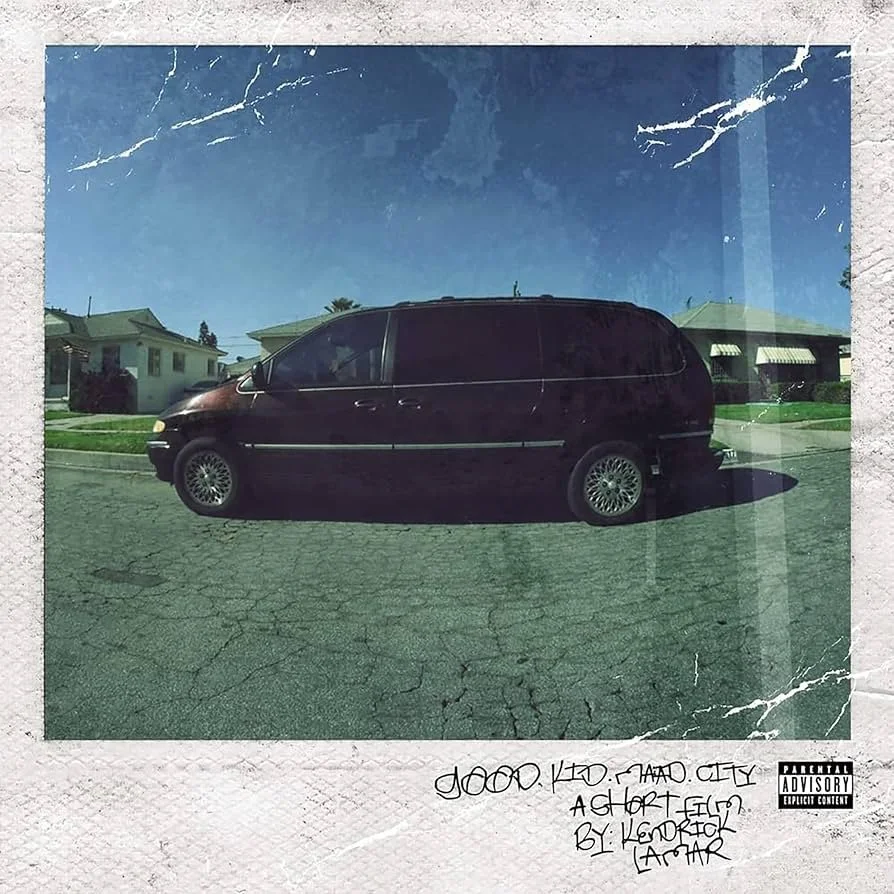Kendrick Lamar - Good kid, m.A.A.d city
Kendrick Lamar's good kid, m.A.A.d city is an intense exploration of culture, survival, and self-awareness—a sonic journey that translates the reality of Compton life into an experience that resonates far beyond regional or social boundaries. This is storytelling at its finest, a visceral portrayal of youth, struggle, and resilience that makes Kendrick not just an artist but a narrator of our time. He becomes a conduit, with words that bridge the divide between his world and anyone outside it, showing that while circumstances may differ, the human experience remains deeply interconnected. Here, Kendrick is an open book, drawing you into his world with uncompromising honesty, reflecting on everything from family and faith, money, greed, violence, and hope.
From the very first listen, it’s evident how meticulously each track was crafted to tell a part of the whole. Kendrick’s mastery of storytelling unfolds in waves, each song containing lines that could stand alone as poetry yet work together to form a larger narrative.
Every line on this album feels like it could be quoted, each track a meticulously crafted piece of a larger narrative. It’s a rare album where each moment, each sound, and every nuance feels essential. Kendrick doesn't shy away from the darkness, covering raw themes—sex, money, drugs, parties, violence, and gang conflicts—by piecing together each song like scenes in a movie.
The audio snippets and voicemail messages between intense themes and carefree tracks like “Bitch, Don’t Kill My Vibe” provide depth, anchoring the album’s tone and crafting an immersive, multi-dimensional narrative. The album’s heart pulses in tracks like “m.A.A.d city,” where Kendrick reaches a boiling point, carrying the weight of his environment and its psychological toll. The intensity only builds as we reach “Swimming Pools,” a sobering reflection on loss and self-preservation. The outro, depicting the tragic death of his friend Dave, is harrowing yet integral, as it drives Kendrick’s revelation: to survive, he must break the cycle. Finally, Kendrick finds a way forward, grappling with the weight of his past while reaching for a life rooted in faith and purpose. The album’s final moments feel like an epilogue, symbolizing Kendrick’s emergence from chaos with a newfound resolve to chart a different path.
What this album ultimately achieves is a cinematic experience. Each song is a chapter in a larger story, with every lyric, skit, and melody serving a purpose. There are no filler tracks, no wasted lines; each moment adds to the rich tapestry of Kendrick’s story, making the album a nearly flawless execution of musical storytelling.
With good kid, m.A.A.d city, Kendrick achieves one of the greatest feats in hip-hop and modern music. It’s not just an album; it's a masterclass in storytelling—a complex, deeply personal narrative with universal resonance. While Kendrick later won the Pulitzer for DAMN., it’s this album that truly deserved such recognition, setting a standard in hip-hop narrative and musical depth that remains unrivaled. This is a landmark in storytelling, a monumental work of art, and a defining moment in contemporary music.
10.0/10
